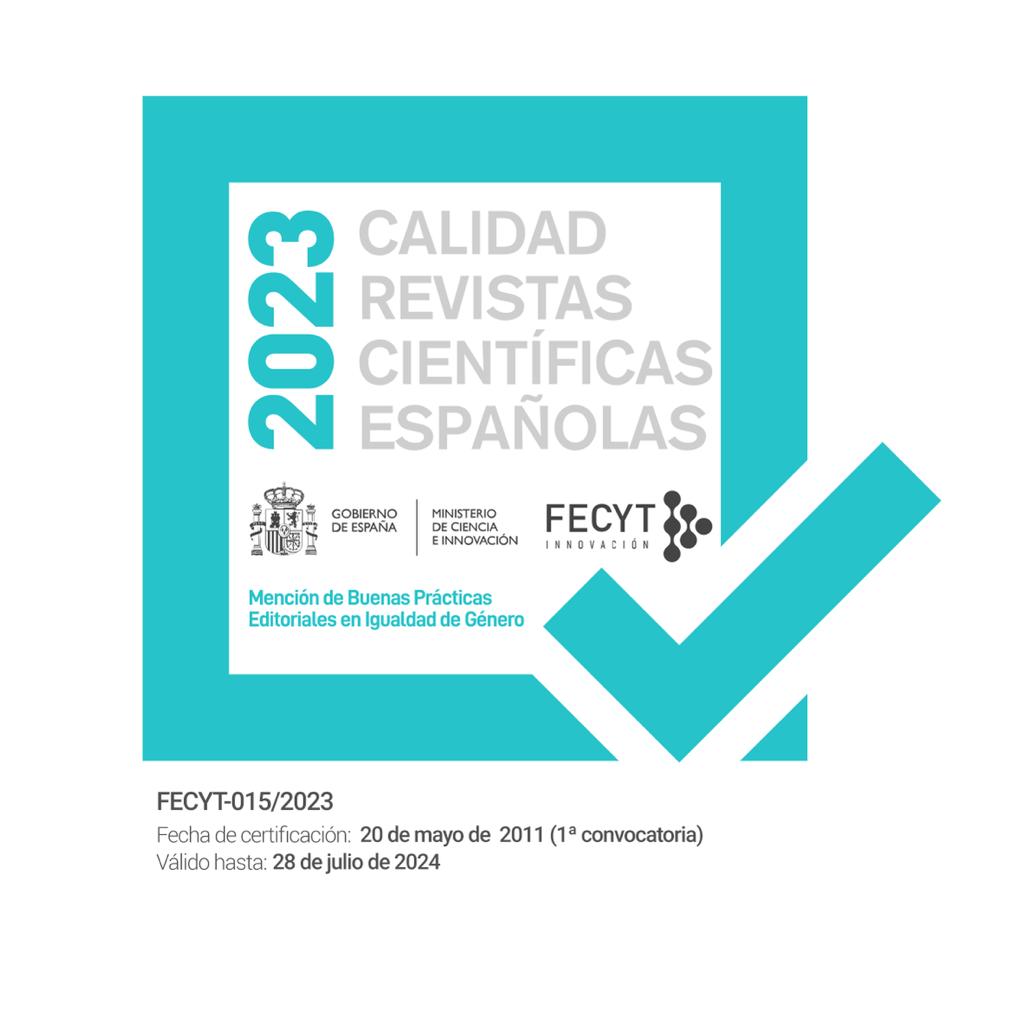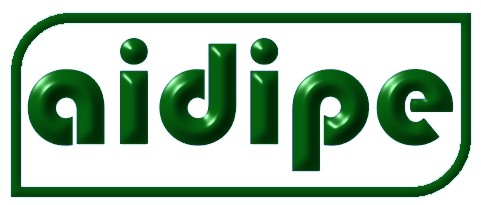Instrument for analysing digital entrepreneurship competence in higher education
DOI:
https://doi.org/10.30827/relieve.v28i1.22831Keywords:
Digital entrepreneurship, competence, Higher Education, questionnaireAbstract
Entrepreneurship and digital skills are key competences that students must acquire throughout their formal education. The EmDigital model was developed to assess digital entrepreneurship competence by combining both. This model describes the competence of digital entrepreneurship in terms of four areas and 15 subcompetences. The aim of the study is to validate a quantitative instrument to measure digital entrepreneurship competence in university students. The following techniques were used: focus group, expert judgement, cognitive interviews and Exploratory Factor Analysis. A pilot sample of 190 final year undergraduate students (60% were female with an average age of 24.97) was used. The reliability of the instrument was very good. The AFE results show an instrument composed of 4 factors that explain 43% of the variance. Based on the results, the instrument has been revised and a definitive questionnaire has been created. This final version of the questionnaire is introduced in this article. The data only reflect gender differences in one of the dimensions of the instrument, namely the identification of opportunities, where men score higher.
Downloads
References
Ala-Mutka, K. (2011). Mapping Digital Competence: Towards a Conceptual Understanding. Luxembourg: JRC-IPTS European Union. https://ec.europa.eu/jrc/en/about/jrc-site/seville?id=4699
Allen, J. (2019). Digital entrepreneurship (1ª ed.). Routledge.
Arranz, N., Ubierna, F., Arroyabe, M.F., Pérez, C., & Fernández de Arroyabe, J.C. (2017). The effect of curricular and extracurricular activities on university students’ entrepreneurial intention and competences. Studies in Higher Education, 42(11), 1979-2008. https://doi.org/10.1080/03075079.2015.1130030
Ato, M., López, J.J. y Benavente, A. (2013). Un Sistema de clasificación de los diseños de investigación en psicología. Anales de psicología, 29(3), 1038-1059. https://doi.org/10.6018/analesps.29.3.17851
Bacigalupo, M. (2022). Los marcos de competencia como herramienta de orientación. RIITE Revista Interuniversitaria de Investigación en Tecnología Educativa, (12), 20–33. https://doi.org/10.6018/riite.523261
Bacigalupo, M., Kampylis, P., Punie, Y., & Van den Brande, G. (2016). EntreComp: The Entrepreneurship Competence Framework. Joint Research Centre. http://dx.doi.org/10.2791/160811
Barroso-Osuna, J.M. y Cabero-Almenara, J. (2013). La utilización del juicio de experto para la evaluación de TIC: el coeficiente de competencia experta. Bordón. Revista de Pedagogía, 65(2), 25-38. https://recyt.fecyt.es/index.php/BORDON/article/view/brp.2013.65202
Bernal-Guerrero, A. y Cárdenas-Gutiérrez, A. R. (2014). La formación de emprendedores en la escuela y su repercusión en el ámbito personal. Una investigación narrativa centrada en el Programa EME. Revista española de Pedagogía, 257, 125-144. https://revistadepedagogia.org/wp-content/uploads/2014/02/257-06.pdf
Bernal-Guerrero, A. y Cárdenas-Gutiérrez, A. R. (2017). Evaluación del potencial emprendedor en escolares. Una investigación longitudinal. Educación XX1, 20(2), 73-94. https://doi.org/10.5944/educxx1.19032
Boomsma A. (1985). Nonconvergence, improper solutions, and starting values in LISREL maximum likelihood estimation. Psychometrika, 50, 229–242. https://link.springer.com/article/10.1007/BF02294248
Carreón, J., Morales, M.L., Rivera, B., García, C. y Hernández, J. (2014). Emprendedurismo migrante y comerciante: estado del conocimiento. Tlatemoani: Revista académica de investigación, 15, 158-187. https://dialnet.unirioja.es/servlet/articulo?codigo=7333761
Carretero, S., Vuorikari, R., & Punie, Y. (2017). DigComp 2.1. The digital Competence Framework for Citizens. With eight proficiency levels and examples of use. Publication Office of the European Union. https://doi.org/10.2760/38842
Comisión Europea (2006). Competencias clave para el aprendizaje permanente. Recomendación 2006/962/CE del Parlamento Europeo y del Consejo, de 18 de diciembre de 2006, sobre las competencias clave para el aprendizaje permanente [Diario Oficial L 394 de 30.12.2006] https://eur-lex.europa.eu/LexUriServ/LexUriServ.do?uri=OJ:L:2006:394:0010:0018:ES:PDF
Comisión Europea (2014). Entrepreneurship Education. A Guide for Educators. https://dx.doi.org/10.2769/51003
Comisión Europea (2016). DigCompOrg. Digitally Competent Educational Organisations. Bruselas: Parlamento Europeo. https://ec.europa.eu/jrc/en/digcomporg
Contreras-Velásquez, J.C., Wilches-Durán, S.Y., Graterol-Rivas, M.E. y Bautista-Sandoval, M.J. (2017). Educación superior y la formación en emprendimiento interdisciplinario: Un caso de estudio. Formación Universitaria, 10(3), 11-20. http://dx.doi.org/10.4067/S0718-50062017000300003
Cruz García, L. (2015). Especificación de un modelo de emprendimiento electrónico. Tlamati, 6(1), 72-83. http://tlamati.uagro.mx/t61/t6110.pdf
Cruz García, L. (2016). Emprendimiento digital: estudio de caso con universitarios de comunicación, UAEM UAP Huehuetoca. Revista de Ciencias Sociales, 29, 34-45. https://revistas.upr.edu/index.php/rcs/article/view/7395/6021.
Dillman, D. A. (2019). Asking the Right Questions in the Right Way: Six Needed Changes in Questionnaire Evaluation and Testing Methods. In P. Beatty, D. Collins, L. Kaye, J.L. Padilla, G. Willis & A. Wilmot. (Eds.) Advances in Questionnaire Design, Development, Evaluation and Testing (pp. 25-45). Wiley Online Library https://doi.org/10.1002/9781119263685.ch2
Einhorn, H. J. (1974). Expert judgment: Some necessary conditions and an example. Journal of Applied Psychology, 59(5), 562–571. https://doi.org/10.1037/h0037164
Escobar-Pérez, J. y Cuervo-Martínez, A. (2008). Validez de contenido y juicio de expertos: Una aproximación a su utilización. Avances en Medición, 6, 27-36. http://www.humanas.unal.edu.co/psicometria/files/7113/8574/5708/Articulo3_Juicio_de_expertos_27-36.pdf
Ferrari, A. (2012). Digital Competence in Practice: An Analysis of Frameworks. JRC Technical Reports. Joint Research Center. European Commission. https://doi.org/10.2791/82116
Ferrari, A. (2013). DIGCOMP: A Framework for Developing and Understanding Digital Competence in Europe. Luxemburgo: Oficina de Publicaciones Oficiales de la Unión Europea. https://doi.org/10.2788/52966
Ferrari, A., Neza, B., & Punie, Y. (2014). DIGCOMP: A Framework for Developing and Understanding Digital Competence in Europe. eLearning Papers, 38, 3-17. https://doi.org/10.2788/52966.
González-Calatayud, V., Román García, M. y Prendes Espinosa, M. P. (2018). Formación en competencias digitales para estudiantes universitarios basada en el modelo DigComp. Edutec. Revista Electrónica de Tecnología Educativa, 65, 1-15. https://doi.org/10.21556/edutec.2018.65.1119
Hair, J. F. (2009). Multivariate Data Analysis (7th edition). Pearson Prentice Hall.
Jones, B., & Irelade, N. (2010). Enterprise education as pedagogy. Education and Training, 52(1), 7-19. https://doi.org/10.1108/00400911011017654
Kampylis, P., Punie, Y. y Devine, J. (2015). Promoting Effective Digital-Age Learning - A European Framework for Digitally-Competent Educational Organisations. http://dx.doi.org/10.2791/54070
Kluzer, S., & Pujol Priego, L. (2018). DigComp into Action: Get inspired, make it happen. A user guide to the European Digital Competence Framework. Luxembourg: Publications Office of the European Union. https://doi.org/10.2760/112945.
Kollman, T. (2006). What is e-entrepreneurship? Fundamentals of company founding in the net economy. International Journal of Technology Management, 33(4), 322-340. http://dx.doi.org/10.2791/54070
Kollman, T. (2009). E-entrepreneurship: the principles of founding electronic ventures. En F. Zhao (Ed.), Selected readings on information technology and business systems management (pp. 204-225). IGI Global. http://dx.doi.org/10.4018/978-1-59904-901-4.ch008
López-Navarrete, A.J., López-Cepeda, I., & Álvarez-Ruiz, A. (2019). The “Hawkers” case study: a model of the strategic use of resources offered by digital environments. Mediterranean Journal of Communication, 10, 45-61. https://doi.org/10.14198/medcom2019.10.2.13.
Lorenzo, O. (2012). La empresa en Red: emprendimiento+innovación+Tecnología. Boletín de estudios económicos, 67(205), 133-144. https://dialnet.unirioja.es/servlet/articulo?codigo=3896882
Lucas, M., & Moreida, A. (2017). Information and Communication Overload: Can DigComp Help? In R.P. Figueiredo Marques & J.C. Lopes Batista (Eds.), Information and Communication Overload in the Digital Age (pp. 157-175). IGI Global Editorial. https://doi.org/10.4018/978-1-5225-2061-0.ch007
Mababu, R. (2017). La transformación digital y el emprendimiento de los jóvenes en Iberoamérica. Revista Internacional y Comparada de Relaciones Laborales y Derecho del Empleo, 5(2), 111-128. https://dialnet.unirioja.es/servlet/articulo?codigo=6032428
Matas, A. (2018). Diseño del formato de escalas tipo Likert: Un estado de la cuestión. Revista electrónica de investigación educativa, 20(1), 38-47. https://doi.org/10.24320/redie.2018.20.1.1347
McAdam, M., Crowley, C., & Harrison, R.T. (2020). Digital girl: cyber feminism and the emancipatory potential of digital entrepreneurship in emerging economies. Small Business Economics, 55(4), 349-362. https://doi.org/10.1007/s11187-019-00301-2
McCallum, E., Weich, R., McMullan, L., & Price, A. (2018). Get inspired make happen intoAction EntreComp. A user guide to the European Entrepreneurship Competence Framework. Luxembourg: Publication Office of the European Union. https://doi.org/10.24320/redie.2018.20.1.1347
Mesquita, C., Lopes, R.P., & Bredis, K. (2016). Entrepreneurship in Higher Education as a Horizontal Competence. In M. Peris-Ortiz, J. Alonso, F. Vélez-Torres & C. Rueda-Armengot (Eds.), Education Tools for Entrepreneurship. Creating an Action-Learning Environment through Educational Learning Tools (pp. 223-246). Springer https://doi.org/10.1007/978-3-319-24657-4_17
Morales, P. (2012). El tamaño del efecto (effect size): análisis complementarios al contraste de medias. http://www.upcomillas.es/personal/peter/investigacion/Tama%F1oDelEfecto.pdf
Morales, P. (2013). El Análisis Factorial en la construcción e interpretación de tests, escalas y cuestionarios. http://www.upcomillas.es/personal/peter/investigacion/AnalisisFactorial.pdf
Morrison, R.L., Dillman, D.A., & Christian, M.M. (2010). Questionnaire Design Guidelines for Establishment Surveys. Journal of Official Statistics, 26(1), 43–85. https://www.scb.se/contentassets/ff271eeeca694f47ae99b942de61df83/questionnaire-design-guidelines-for-establishment-surveys.pdf
Moysidou, K., & Hausberg, J.P. (2020). In crowdfunding we trust: a trust-building model in lending crowdfunding. Journal of Small Business Management 58, 511-543. https://doi.org/10.1080/00472778.2019.1661682
Nunnally, J.C. (1978). Psychometric Theory. McGraw-Hill.
Omar, F.I., Othman, N.A., & Hassan, N.A. (2019). Digital inclusion of ICT and its implication among entrepreneurs of small and medium enterprises. International Journal of Engineering and Advanced Technology, 8(5), 747-752. http://doi.org/10.35940/ijeat.E1106.0585C19
OCDE (2005). The definition and selection of key competences. Executive Summary. http://www.oecd.org/pisa/35070367.pdf
Pérez, M., Carreón, J., Quintero, M.L., Bucio, C., García, C. y Aguilar, J.A. (2016). La agenda institucionalista y la gestión del conocimiento: especificación de un modelo de emprendimiento innovador. KAIROS Revista de Temas Sociales, (38), 29-37. https://dialnet.unirioja.es/servlet/articulo?codigo=7139804.
Pérez-Gil, J.A., Chacón-Moscoso, S. y Moreno Rodríguez, R. (2000). Validez de constructo: el uso de análisis factorial exploratorio-confirmatorio para obtener evidencias de validez. Psicothema, 12(2), 442-446. http://www.psicothema.es/pdf/601.pdf
Prendes Espinosa, M. P., Gutiérrez Porlán, I. y Martínez Sánchez, F. (2018). Competencia digital: una necesidad del profesorado universitario del siglo XXI. RED, Revista de Educación a Distancia, 56, 1-22. http://dx.doi.org/10.6018/red/56/
Prendes-Espinosa, M.P. y García-Tudela, P.A. (2020). Modelo EmDigital: áreas e indicadores de la competencia de emprendimiento digital. En E. Archundia, M.A. León, y C. Cerón (Eds.) (2020). Redes de aprendizaje digital en nodos colaborativos (pp. 361-372). Benemérita Universidad Autónoma de Puebla. http://bit.ly/3t3q8vG
Prendes-Espinosa, M.P., García-Tudela, P.A. y González-Calatayud, V. (2021). Un modelo para la formación de emprendedores digitales en la universidad. En J. Ruiz-Palmero, E. Sánchez-Rivas, E. Colomo-Magaña y J. Sánchez-Rodríguez (Coords.), Innovación e investigación con tecnología educativa (pp. 27-40). Dykinson.
Ratten, V., & Usmanji, P. (2020). Entrepreneurship education: time for a change in research direction? International Journal of Management Education, 19, 1-8. https://doi.org/10.1016/j.ijme.2020.100367
Román-García, M. y González-Calatayud, V. (2022). La competencia de emprendimiento digital en función del género: el proyecto EmDigital. Hachetetepé. Revista científica De Educación Y Comunicación, (24), 1-13. https://doi.org/10.25267/Hachetetepe.2022.i24.1205
Shaidullina, A.R., Zakirova, V.G., Kashurnikov, S.N., Arestova, E.N., Shmidt, A.N., & Kovaleva, N.I. (2018). Students training for innovative entrepreneurial activity: Social responsibility competences. Espacios, 39(2). http://www.revistaespacios.com/a18v39n02/a18v39n02p15.pdf.
Schuman, H., & Presser, S. (1981). Questions and answers in attitude surveys. Academic Press.
Testa, S., & Francheri, S. (2015). Learning by failing: What we can learn from un-successful entrepreneurship education. The International Journal of Management Education, 13(1), 11-22. http://doi.org/10.1016/j.ijme.2014.11.001
Torres-Coronas, T., Vidal-Blasco, M.A. y Arias-Oliva, M. (2014). E-emprendimiento en la Educación Superior: la competencia digital. Revista Iberoamericana de Educación, 64(2), 1-12. https://doi.org/10.35362/rie64236
Ventura-León, J. L. y Caycho-Rodríguez, T. (2017). El coeficiente Omega: un método alternativo para la estimación de la confiabilidad. Revista Latinoamericana de Ciencias Sociales, Niñez y Juventud, 17(1), 625-627. https://www.redalyc.org/pdf/773/77349627039.pdf
Vuorikari, R., Punie, Y., Carretero, S., & Van den Brande, G. (2016). DigComp 2.0: The Digital Competence Framework for Citizens. Update Phase 1: The Conceptual Reference Model. Luxembourg: Publication Office of the European Union. https://doi.org/10.2791/11517
Willis, G. B. (2008). Analysis of the Cognitive Interview in Questionnaire Design. Oxford University Press.
Wolf, E.J., Harrington, K.M., Clark, S.L. & Miller, M. W. (2015). Sample Size Requirements for Structural Equation Models: An Evaluation of Power, Bias, and Solution Propriety. Educational and Psychological Measurement, 76(6), 913-934. https://doi.org/10.1177/0013164413495237

Downloads
Published
How to Cite
Issue
Section
License
Copyright (c) 2022 RELIEVE-Revista Electr´ónica de Investigación y Evaluación Educativa

This work is licensed under a Creative Commons Attribution-NonCommercial 4.0 International License.
The authors grant non-exclusive rights of exploitation of works published to RELIEVE and consent to be distributed under the Creative Commons Attribution-Noncommercial Use 4.0 International License (CC-BY-NC 4.0), which allows third parties to use the published material whenever the authorship of the work and the source of publication is mentioned, and it is used for non-commercial purposes.
The authors can reach other additional and independent contractual agreements, for the non-exclusive distribution of the version of the work published in this journal (for example, by including it in an institutional repository or publishing it in a book), as long as it is clearly stated that the Original source of publication is this magazine.
Authors are encouraged to disseminate their work after it has been published, through the internet (for example, in institutional archives online or on its website) which can generate interesting exchanges and increase work appointments.
The fact of sending your paper to RELIEVE implies that you accept these conditions.
















